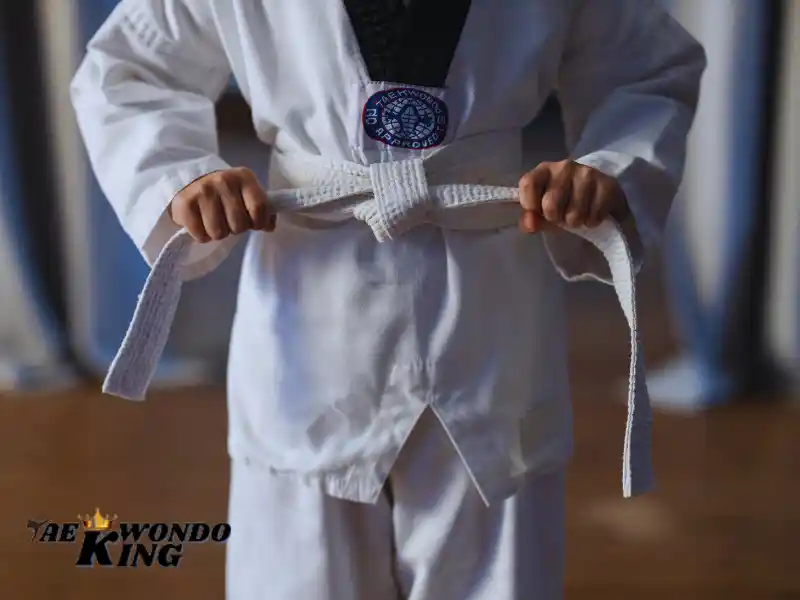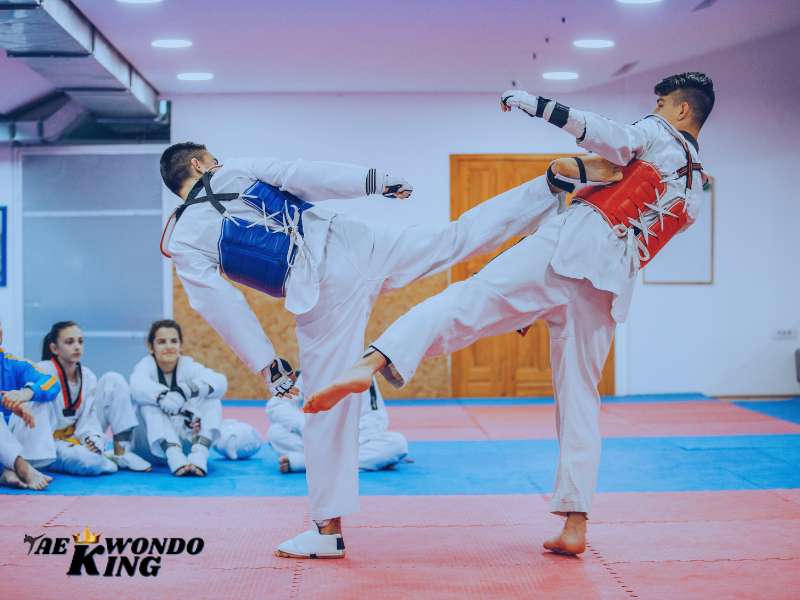
Ever wondered who holds the power to decide a gold medal match while you are watching the games in Munich? An Olympic Taekwondo referee is a top-level official who manages the mat, ensures safety, and gives out penalties to keep the fight fair. I once sat matside and realized that these officials must have faster reflexes than the fighters themselves to catch every move. With my years of experience in high-level sports, I can help you understand the hard work it takes to wear that white uniform. Let’s explore what it takes to join the world’s best judges on the big stage today.
Taekwondo, a discipline that merges martial arts with competitive thrill, has been included in the Olympics since the Sydney Games in 2000. The referees are crucial in maintaining fairness and compliance with regulations behind the scenes. Achieving the status of an Olympic Taekwondo referee represents a demanding yet fulfilling endeavor. Here is a complete guide on how to reach this esteemed goal.
Step 1: Understand the Basics of Taekwondo Refereeing
Becoming an Olympic Taekwondo referee is exciting. You don’t just watch the match, you feel it. I still remember my first time in the ring. It was intense, but also amazing. To become a referee, you need training and practice. If you’re passionate about Taekwondo, this role could be for you.
Before embarking on an Olympic journey, it is essential to possess a strong grounding in Taekwondo and its regulations. Referees should be knowledgeable in:
World Taekwondo (WT) rules and regulations: The WT oversees Taekwondo competitions, including those held in the Olympics. Get acquainted with their current competition guidelines.
Scoring system: Know how points are allocated for kicks, punches, and various other techniques.
Ethics and professionalism: Referees are expected to show impartiality, integrity, and a deep comprehension of sportsmanship.

Step 2: Gain Taekwondo Experience
To umpire Taekwondo bouts, it is important to have practical experience in the sport. This may consist of:
- Training at a certified Taekwondo dojang.
- Achieving a minimum of a black belt (Dan), as it indicates mastery of the core principles.
- Engaging in local and regional tournaments to grasp the dynamics of a match from the athlete’s viewpoint.
Step 3: Obtain National Referee Certification
Every prospective Olympic referee must initially become a certified national referee. This procedure generally includes:
- Joining your National Taekwondo Federation: Each nation has a governing body connected with the WT.
- Completing referee training programs: These programs concentrate on both theoretical and practical components of officiating.
- Passing the examination: You will be assessed on your knowledge of the regulations, scoring, and capability to make precise decisions during practice matches.
- Gaining experience in national tournaments: Officiate matches at the local and national levels to establish credibility and expertise.
Step 4: Earn International Referee Certification
To officiate at the Olympic tier, you must possess an International Referee (IR) License granted by the WT. Here’s how:
- Attend a WT International Referee Seminar: These seminars offer insights into advanced refereeing practices and rules specific to the Olympics.
- Pass the written, oral, and practical examinations organized by the WT.
- Accumulate experience by officiating in WT-certified international events, such as the World Championships or Grand Prix.
Step 5: Build Your Reputation
Becoming an Olympic referee necessitates certification and acknowledgment as a top-tier official.
- Officiate at prestigious international competitions.
- Continuously uphold fairness, accuracy, and professionalism.
- Remain informed about changes in WT regulations and improve your skills via ongoing education and reviewer feedback.
Step 6: Get Selected for the Olympics
The International Olympic Committee (IOC) and WT choose Olympic referees based on their performance and experience. Significant considerations entail:
- Track record: Your history of officiating significant events and evaluations by the WT.
- Merit and impartiality: Demonstrating integrity and neutrality in competitions.
- Language proficiency: Being proficient in English or another commonly spoken language is frequently a requirement.
The Role of an Olympic Taekwondo Referee
The main job of an Olympic Taekwondo referee is to keep the match moving while following strict global rules. They start and stop the action, check the electronic gear, and call for video reviews if a coach has a doubt. In the USA, many fans find it helpful when the referee uses clear hand signals so everyone knows why a point was given or taken away. These signals are the “language” of the mat and must be perfect every time.
- Center Referee: Stays on the mat to control the tempo and call out “Gam-jeom” (penalties).
- Corner Judges: Sit at the edges to help score hits that the sensors might miss.
- Technical Delegate: Oversees the whole mat to make sure the rules are followed exactly.
Summary: Referees serve as the primary authority on the mat, balancing the flow of the match with strict adherence to safety and scoring rules.

How to Become a World-Class Official
To work as an Olympic Taekwondo referee, you must climb a long ladder of local and national tests. You start at small events and work your way up to “International Referee” (IR) status. US officials often attend special camps held by USA Taekwondo to stay sharp on new rule changes. It takes a huge amount of focus and a deep love for the sport to reach this level of skill.
| Step | Level | Focus |
| National | Local Events | Basic Rules & Safety |
| International | Global Opens | Advanced Tech & Speed |
| Olympic | The Games | Peak Fairness & Logic |
Summary: The path to officiating at the Olympics involves years of rigorous certification and consistent performance at international tournaments.
My Personal View on the Pressure
I remember talking to a friend who worked as an Olympic Taekwondo referee, and they said the “Video Replay” is both a gift and a curse. It helps get the call right, but it also puts your choices under a giant lens for the whole world to see. It is a thankless job in many ways, but the pride of keeping the sport clean is a huge reward. You have to be calm, fair, and very fast to handle the heat of a finals match.
Summary: High-level officiating requires immense mental fortitude to handle the scrutiny of televised video reviews and global expectations.
Challenges and Rewards for Olympic Taekwondo Referees
The journey to becoming an Olympic Taekwondo referee is challenging. It demands years of commitment, education, and experience. Nevertheless, the benefits are substantial. You will have an important role on the global platform, observing the world’s top athletes compete and enhancing the spirit of fair competition.
Conclusion
Becoming an Olympic Taekwondo referee transcends a mere profession. It represents a dedication to excellence, equity, and the sport itself. If you possess a passion for Taekwondo and the resolve to achieve high standards, this esteemed position could be attainable for you.
Initiate your journey today by connecting with your national Taekwondo federation and taking the initial steps towards certification. The Olympic arena is calling!
FAQs
An Olympic Taekwondo referee is someone who oversees matches at the highest level of Taekwondo competition, ensuring fair play and enforcing the rules. Learn more about the role and its responsibilities.
To become an Olympic Taekwondo referee, you need to complete proper certification, undergo training, and gain experience at lower levels of competition. Learn more about the training process.
You must pass various certification courses, attend seminars, and demonstrate knowledge of Taekwondo rules. Additional international experience is highly recommended. Learn more about the qualifications.
The referee ensures athletes follow the rules, score points accurately, and maintain the flow of the match. It’s all about fairness and precision. Learn more about their duties.
It’s a high-pressure role, requiring focus and quick decision-making. The stakes are high, with the world watching. Learn more about the challenges of being a referee at the Olympic level.

Founder, Owner, and CEO of TaekwondoKing.
He is one of the top 100 martial artists in the World and among the top 20 referees in Bangladesh.
Ehatasamul Alom is an esteemed Kukkiwon Certified Taekwondo 3rd Dan Black Belt with over 15 years of experience in this dynamic martial art. Born in Rajshahi, Bangladesh, Ehatasamul’s journey with Taekwondo began at the tender age of seven. His passion led him to compete at national and international levels, where he has bagged numerous awards and honors. He is also a member of the Taekwondo National Referee Panel.
With a Bachelor’s degree in Sports Science from the prestigious Rajshahi University, Ehatasamul has a deep understanding of the technical and scientific aspects of martial arts and some other martial arts.
In 2022, Ehatasamul created the “TaekwondoKing.com” to share his knowledge, Free Resources, Values, and Real experiences. His articles focus on Taekwondo training techniques, competition strategies, Sport Products Reviews, and the art’s rich history and philosophy. He also writes about the importance of mental fortitude and discipline, key aspects of his teaching philosophy. He has already launched many sports, Taekwondo, and health-related Free online tools. His goal is to inspire both beginners and seasoned practitioners worldwide through insightful and engaging content.
If you need any help, contact Ehatasamul Alom at any time.




